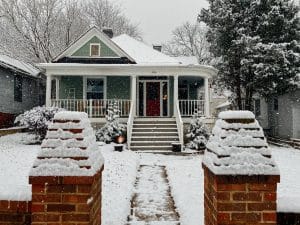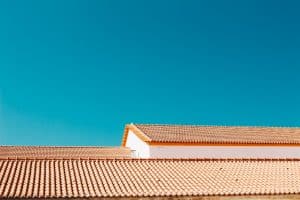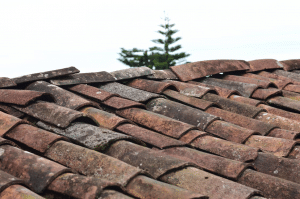When it comes to choosing the right roof for your home, you’ll encounter various options, but two of the most common are flat roofs and pitched roofs. Each type has its advantages and disadvantages. At Layton Roofers, we’re here to help you understand the pros and cons of flat roofs and pitched roofs so you can make an informed decision that suits your needs.
Flat Roofs
Pros:
1. Affordability
Flat roofs are often more cost-effective to install and maintain than pitched roofs. The materials required are typically less expensive, and the installation process is generally quicker.
2. Usable Space
Flat roofs provide usable space on top, which can be transformed into a rooftop garden, outdoor living area, or even additional storage. This extra space can add value to your property.
3. Easy Maintenance
Maintenance and inspections on flat roofs are more straightforward since you can access the entire surface easily. This accessibility makes repairs and upkeep less costly and time-consuming.
Cons:
1. Drainage Issues
One of the primary challenges with flat roofs is drainage. They are prone to water pooling, which can lead to leaks and structural damage if not addressed promptly. Proper drainage systems are essential.
2. Lifespan
Flat roofs tend to have a shorter lifespan compared to pitched roofs. They may require replacement or more frequent repairs over the years.
3. Limited Aesthetic Options
Flat roofs may not provide the same aesthetic appeal as pitched roofs, which come in various styles and materials.
Pitched Roofs
Pros:
1. Excellent Drainage
Pitched roofs have a natural slope that allows water to drain efficiently, reducing the risk of leaks and water damage.
2. Durability
Pitched roofs tend to have a longer lifespan and can withstand harsh weather conditions, making them a durable choice.
3. Aesthetic Versatility
Pitched roofs come in various styles and materials, allowing you to choose a design that matches your home’s aesthetics.
Cons:
1. Higher Cost
Pitched roofs are generally more expensive to install due to the complexity of their design and the materials required.
2. Limited Usable Space
Unlike flat roofs, pitched roofs do not provide usable space on top, limiting your options for rooftop amenities.
3. Maintenance Challenges
Maintaining pitched roofs can be more challenging and costly due to their sloped design, which can make inspections and repairs more difficult.
Making the Right Choice
The choice between a flat roof and a pitched roof ultimately depends on your budget, aesthetic preferences, and specific needs. It’s essential to consult with roofing professionals like Layton Roofers to assess your home and make an informed decision. We can provide expert guidance and tailored solutions to ensure you choose the roof that best suits your property.
Whether you opt for a flat roof or a pitched roof, Layton Roofers is here to deliver high-quality roofing solutions tailored to your requirements. Contact us today at (801) 701-3276 or visit our website here to discuss your roofing project. We’re committed to ensuring your home has the perfect roof to meet your needs.




